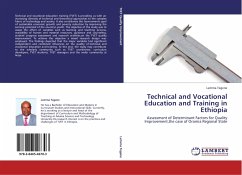This work seeks to examine the management and implementation of Technical and Vocational Education and Training (TVET) courses in the secondary school curriculum in Samoa. Adopting the phenomenological perspective, the study attempts to understand the management and implementation of TVET curriculum from the viewpoints of its relevant stakeholders that included the principals, teachers, students and the parents of the five case study schools and the senior officials of the Ministry of Education, Sports and Culture (MESC). The qualitative case study approach was employed to gather and analyze data and report the findings to its interested audiences. In particular, the data gathering strategies included in-depth interviews, participant observation and documentary analysis. These multiple approaches facilitated triangulation that strengthened the validity and reliability of the research findings. The theoretical and conceptual underpinnings of the study were informed by the literature on change management, TVET and the fieldwork data.








